This content originally appeared on Level Up Coding - Medium and was authored by FadinGeek
Most of us using Chrome at moment either used to use Firefox back in the day or are too young to know about this… At least according to stats.
Firefox was a legend. It’s of course, still underused by millions and millions of people, but not the way it was before. It was without a doubt one of the most dominant software before. But, personally, though, I think that they got what they deserved. And I’m not positive about the product itself as of now.
This is going to be a long roller coaster, through the rabbit hole and… here we go.
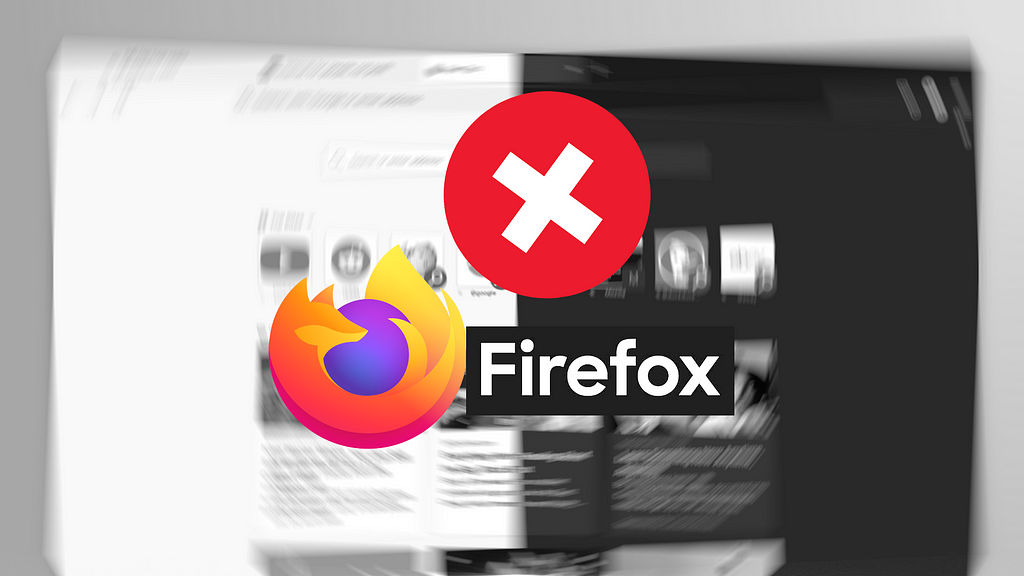
Part1: The Rise of The Software
The Hard Work Involved
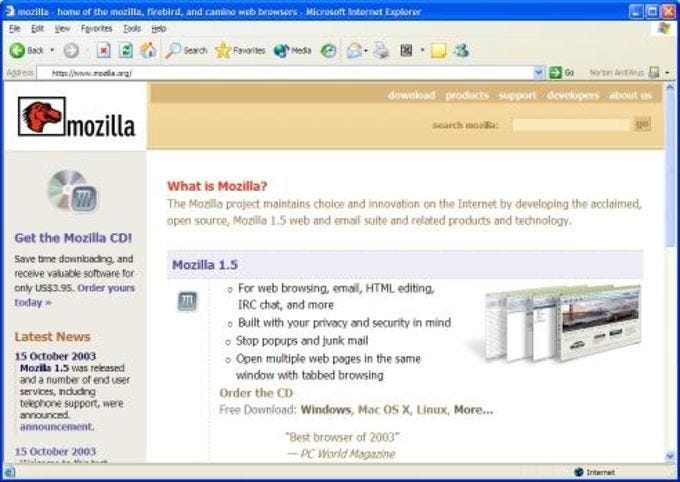
It all started with an app called Netscape Navigator, developed by a group of people, which was then bought by a company called AOL. This is believed to be the very first web browser ever and this skyrocketed since nobody saw an app like this before. But after some time, it really did not get the traction after the announcement of Internet explorer, since it was viewed as a “Third-party app” when compared to Internet explorer. Therefore, the market share of Netscape went from almost 92% to… about 15%.
Back in the days, Internet explorer(…yeah… this is how people lived) was the most used web browser ever. It was pre-installed, easy to use, and works without hassle for our pasts.
This was when Netscape decided to make the boldest decisions of it’s history. It open sourced it’s code.
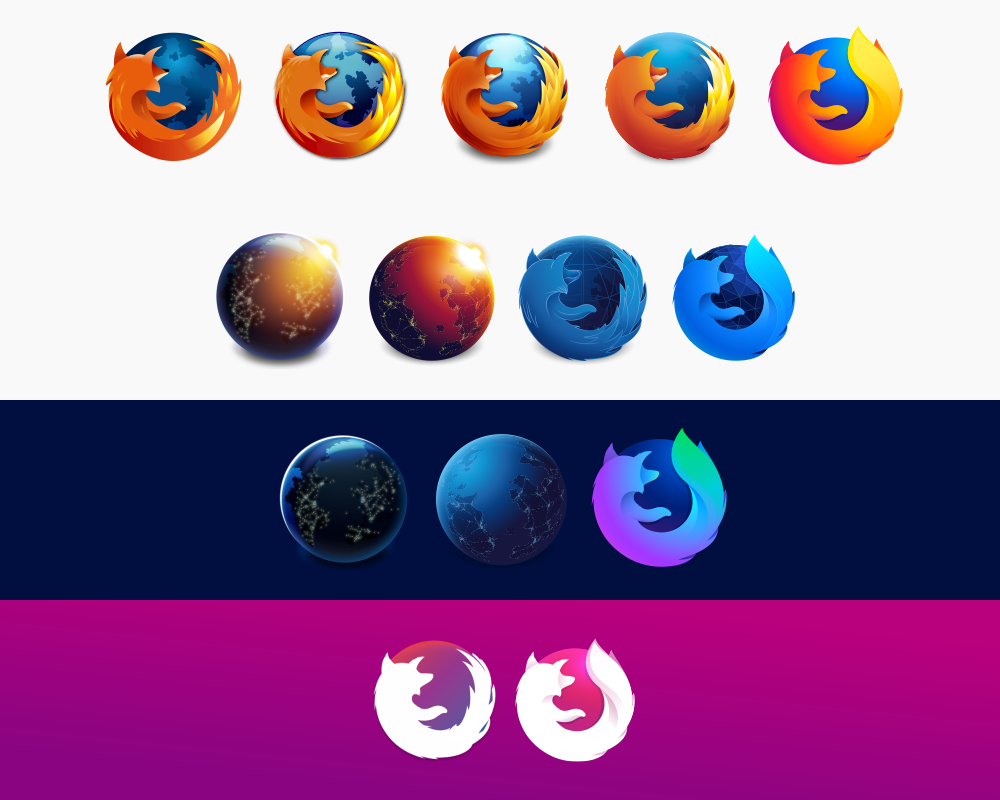
Now it might not seem so bold if it did the same right now, since there are many open source apps at the present. But, things were very different before and there were very few open-source apps.
On the same day, Jamie Zawinski, who was a Netscape Developer, registered Mozilla, which was originally a codename of the version of Netscape. The name came from a combination of Mozake and Godzilla.
Mozilla was initially aiming to be an application suit. A collection of applications to provide good internet navigation and communication experience. But then this was not ideal and profitable, considering that they were making everything open source.
In October 1998, the Mozilla team finally decided to wrap up everything and start from scratch by building a cross-platform browser based on a native framework. For this, they were already building gecko engine before.
In 1998, they finally released a preview version. Although it was simple and generic people seemed to appreciate the work and expected the main release. But sadly, this was heavily procrastinated since Mozilla planned to add some extra suit of apps at the last minute.
But finally, in June 2002, the first release of Pheonix Browser was announced. It was called Pheonix browser because of the tough history it had.
The Change
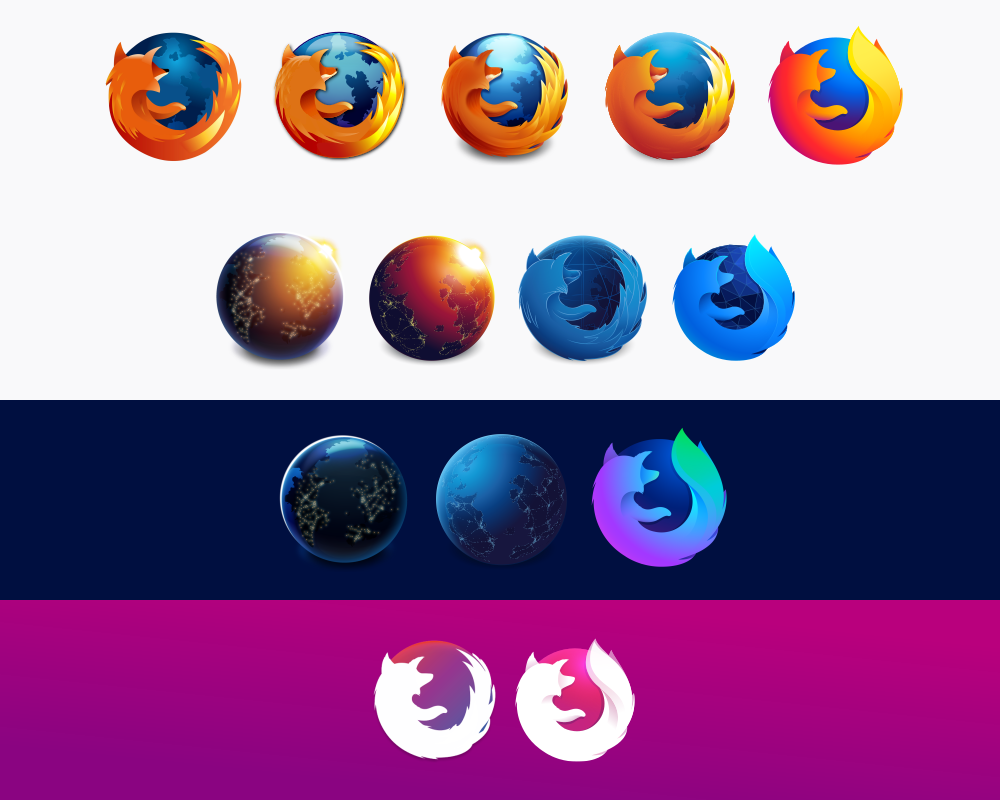
But when everything was going well, AOL decided to drop off the support for the browser. But Mozilla, at this point, got VERY lucky to actually start its very own foundation called the Mozilla Foundation, which eventually replaced AOL’s job, under the leadership of Dave Hyatt, Joe Hewitt, and Blake Ross.
So Pheonix browser continued to rise from the ashes. It was then threatened by another company called Pheonix bios for trademark similarities and therefore was renamed Firebird(not Firefox yet).
As time passed by, the browser also started officially supporting macOS. The name was finally changed to firefox due to the community hating the name of the browser.
Part 2: The Drastic Evolution
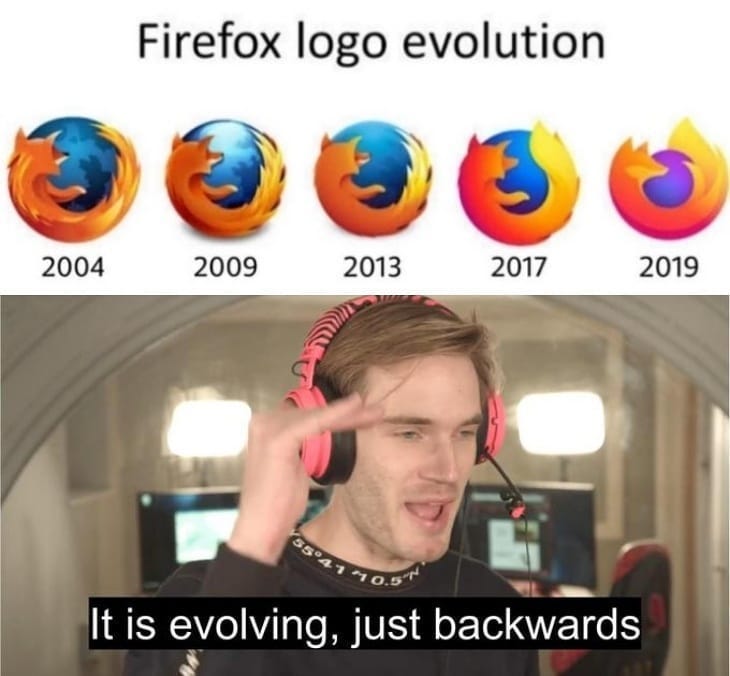
Mozilla Firefox was the very first web browser to popularize the idea of “tabs”(Thanks chrome). It also started implementing other ideas like popup blocking(now ad blocking), extensive security and privacy(back in the days) to not track the system when not needed, holding potentially harmful trackers, and so on, not to mention it was also the first browser to start its own download manager, independent of the operating system used.
The Guinness World Record
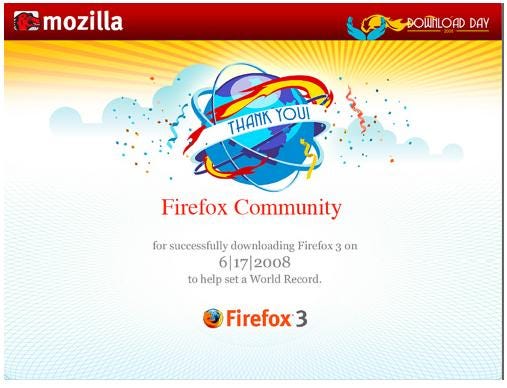
The software team then hyped the community for the next release Firefox-3.0. The exact date of releasing this was announced to the community and so released it did.
On 17 June 2008, Firefox released version 3 and set the world record for having the most “unique downloads” in one day with the number being around 8 million in 24 hrs, setting the Guinness world record, which looked almost unbeatable at the time.
Innovation

It just kept adding features on top of features, which were so unique and non-identical to other competitors with almost all the modern features innovated into its own spin.
It finally reached its peak of 34% of all users using Firefox around 2010. This was a huge accomplishment considering that it used to be just 5% back in 2005, with its major competitor being… Well, Internet explorer.
Part 3: The Beginning of Going Down Hill

The major reason Mozilla got this was because it was no longer seen as a “Third Party App” to Internet explorer, but more as a better-extended version of Internet Explorer with all the features it needs to have.
But things really change when you have more than one software like that, backed up by a more popular company.
At the time, Google's CEO Eric Schmidt was not interested in the Web market. But, people like Larry Page decided to hire some developers directly from Mozilla and develop a better version of Firefox, forcing the CEO to change his mind. And there started the journey of the current dominant browser, Google Chrome.
From Innovation To Just Trying Hard

This was when Firefox noticeable changed, its pace, and the feature patterns it added. It seemed to be this software that tried to keep up with the pace of Google Chrome more than a software that actually had its own ideas. This led to Firefox introducing its mobile version of the web browser and similar features almost mimicking the exact features of Google. This led to Chrome having a higher ground since the features added by Chrome were only advantageous to itself. For example, the mobile version of chrome integrates well with Android and is the default browser in android because both Android and Chrome was owned by Google.
The Competition

Since google chrome just started giving good competition, and also making itself and default for Android, the marketing and popularity of Chrome flew through the sky. While on the other hand, Firefox seemed to mimic the features of Chrome instead of adding its own unique features, and use cases and implementing different marketing strategies.
The Obstacles

The Firefox team from Mozilla then started their own operating system in the market which was already taken over by its good old competitors, Google and Microsoft. They started a heavy development schedule for FirefoxOS.
The main reason this utterly failed, is because there is literally no reason for people to use this, considering that most Phones came with Android pre-installed and nobody was mad enough to install FirefoxOS instead which came with no software support and had no unique selling point. This further slowed down the development of ACTUAL projects like Firefox itself, not to mention the increase in hate and critics in the community.

Mozilla had a HUGE… I mean HUMONGOUS advantage over Google by having a very large community of 34% of people using and trusting Firefox. They were just not quick enough to grab their audience back from Chrome.
I mean… The above quote is what I said. But, let’s hear what the CEO of Firefox himself wants to say.
Firefox did not keep up with the market and what people really want. A lot of hardcore Firefox fans are now happy Chrome Users. — Chris Beard
Part 4: Too Late :(
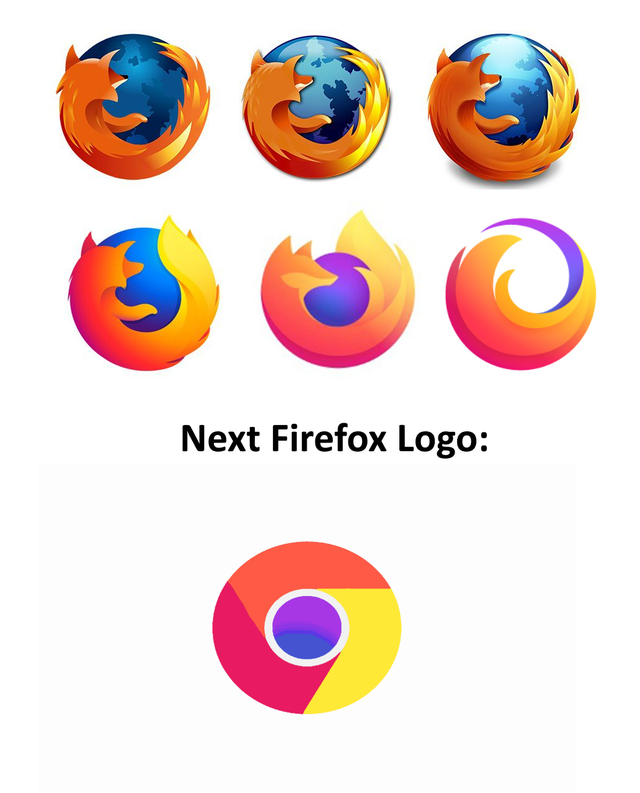
In 2017, Mozilla released its new version 57 doubling down on almost everything, with a more modern logo, a very modern-looking UI, a new rendering engine, a better user experience, better animations, and so on, codenamed “Photon”.
It also released many new products, actually being more useful and also focusing on its actual audience, (unlike Firefox OS), like clockwise, containers, tracker blocking, a premium VPN server, a better appearance, and a themes store for the browser themes.
But, the problem was that it was too late. When Firefox first started, it had an advantage where most people using the computer were technical and knew what were doing, unlike the present where even babies are making Tik Toks… If you know what I mean.
This means that people prefer to have long-term, less bloated apps. If Chrome is already installed by default, why install another(in android)? And since chrome is used in Android why not even the PC? The game further changes, when other browsers like Opera, and Vivaldi start actually doubling down on the audience it has and being more specific, like Opera GX which gives a free mini-VPN, for users — something which Firefox gives after paying.
Finally, we see a further decrease in the users using Firefox when the Brave browser came in, targeting a similar audience, but with better marketing and feature implementation.
Why It Deserves What It Gets?
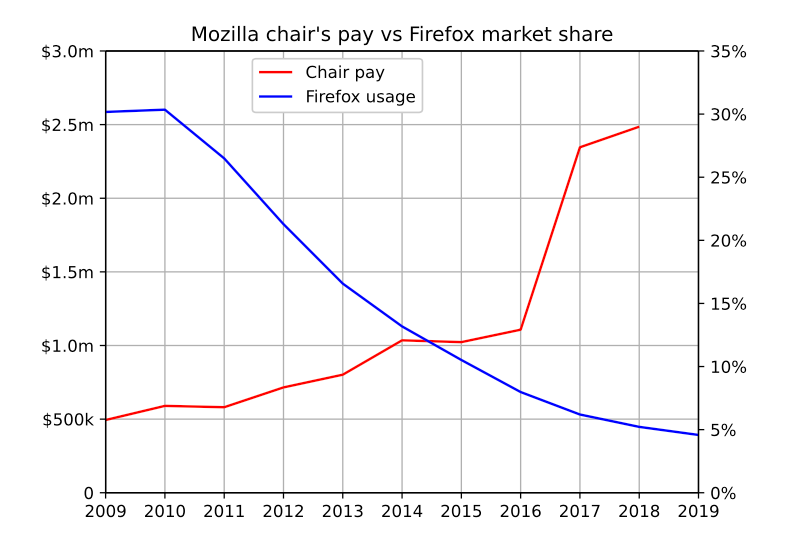
The above image is the salary demanded by the chairperson of Firefox, in comparison to the annual loss it faced till now in the number of users, and NO… The graph is not exaggerated or approximated.
Although I’m not supposed to talk about the person's paycheck, come on… The “Mozilla Team” which it used to be is now a huge company, although the work and effort put in have just not been what it needs to be. Rather than continuing to focus on its audience implementing new ideas and keeping it up, they rather preferred it to keep up with Google and compete with Its audience on Android and Windows. This led to the present where the only place where Firefox is dominant is on Linux, where it seems like the community is trying hard to give another chance to them, but even there, browsers like Brave and Vivaldi are picking up in Distros like FerenOS.
I’m not gonna lie though, they have actually started trying hard in the past few years. Again, it boils down to the fact that it’s too late. They should’ve don't this when they were on the higher grounds and actually had an advantage over Chrome.
Conclusion
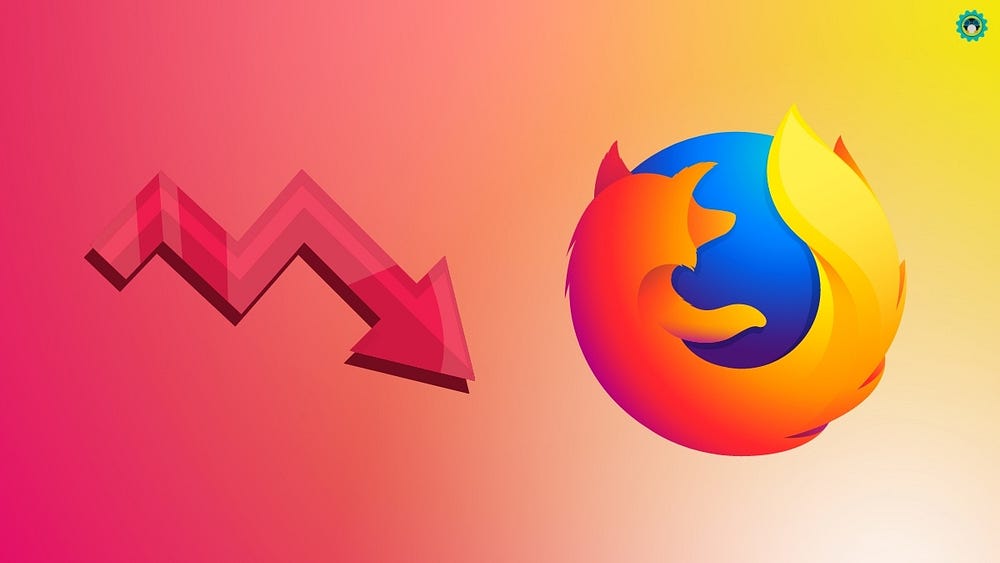
Firefox continues to triple down to nothingness. It released its version 100, which could be a banger considering that people are gonna try it due to its version number, but they did nothing visible to the eye of a normal user.
Personally, I want Firefox to succeed. It’s really bad when one corporate entity like Chrome has such a big market percentage, not to mention, its open-source version-Chromium also has spammed a lot of its forks like Brave.
If there is an open-source browser not based on Chromium, able to regain some traction and dominance, It has to be Firefox. I hope… it understands, its position.
I’ll surely make a complete video on my suggestions, opinions, and steps to take in the future on YouTube. I’ll also be making more tweets and reels/stories/posts over on Instagram and Twitter. That’s about it for this article, I hope you enjoyed it, I’ll meet you in the next one.
You’re Awesome :)
FadinGeek
Why Firefox Deserves Its Sad Decline… was originally published in Level Up Coding on Medium, where people are continuing the conversation by highlighting and responding to this story.
This content originally appeared on Level Up Coding - Medium and was authored by FadinGeek
FadinGeek | Sciencx (2022-07-14T11:58:59+00:00) Why Firefox Deserves Its Sad Decline…. Retrieved from https://www.scien.cx/2022/07/14/why-firefox-deserves-its-sad-decline/
Please log in to upload a file.
There are no updates yet.
Click the Upload button above to add an update.
